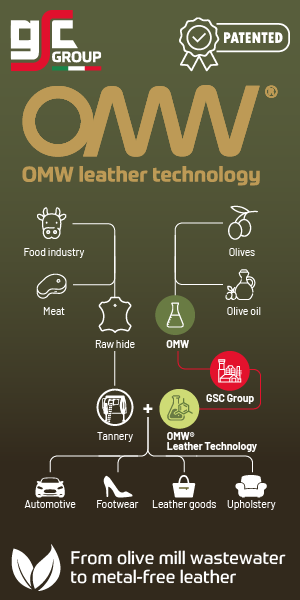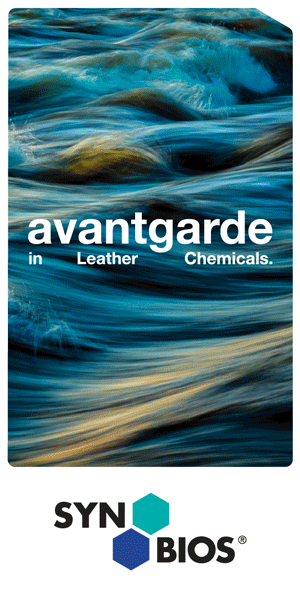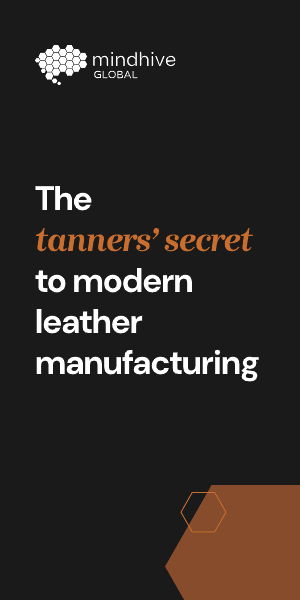Gianni Russo: Ready to face new challenges

The president of UNIC, Gianni Russo, says the overwhelming sensation that Italy’s tanners felt on returning to work after weeks of lockdown was relief, but he says patience is required among member companies as the slow recovery from the covid-19 crisis continues. Something that may help is a new law in Italy protecting the term ‘leather’ from misuse by companies that make or sell synthetic substitutes.
What has been the cost to Italy’s leather industry of the covid-19 crisis?
We still cannot estimate it precisely but the cost will be high. It depends on how the global situation, not only the situation in Italy, evolves in the coming months. Data for the first quarter of the year show that the covid-19 emergency in China contributed to the Italian tanning industry suffering a fall in turnover of 10% in January and February compared to the same months in 2019. In March, when the contagion also spread to our country, we registered a decline of 37%, leading to a quarterly fall of 21%. In recent weeks the presence of the virus has diminished but it will take time for the market to return to normal conditions. We estimate that we will close 2020 with a decline of around 30%, which has never happened in more than 50 years of keeping records.
During the weeks of lockdown, with concerns about your own business and about other UNIC member companies, and in the midst of constantly sad news of people dying, what were you able to do personally in March and April to remain positive?
We all continued to think about how to restart, how to reorganise our businesses, to adapt to the extraordinary emergency situation. Also, and above all, I was thinking about the safety of our workers. I am sure all my colleagues shared the same concerns. We are tanners. We are used to working with a global outlook, in the face of a number of difficulties. But we are positive by nature and we express our positive attitude by producing a beautiful, high-quality material that is appreciated all over the world. As an association, UNIC provided assistance to member companies with the various issues that came up: from commercial problems with customers seeking to cancel orders to the general need to maintain some operations to keep tanneries safe.
How would you describe the atmosphere among leather manufacturers when they were able to return to work in late April or May?
Relief. I have to admit that many Italian tanners were probably no longer able to stay at home. They felt like lions in a cage, ready to face the new challenges that the coronavirus emergency has brought. The first weeks after reopening were mainly dedicated to organising our production facilities in order to guarantee that our employees could carry out their duties in total safety. UNIC and the trade unions who represent employees did a very important job in defining a health-and-safety protocol that could support companies in this regard, and it has been a success. Tanneries have reopened and no problems or critical issues have been reported. After that, we all set about completing orders that we had on stand-by and began working on orders that had arrived during lockdown. However, we cannot hide the fact that, at the moment, there are very few new orders. New orders are missing for us, they are missing for our competitors, for our customers, they are missing for everyone operating in the market. The world is trying to recover; we must be patient and be ready to play our part when we are called upon.
What happened in May 2020 for the environmental situation in the Solofra cluster and the Sarno river to come to a head? What was new about this? Why did UNIC choose this time to complain publicly about being a “scapegoat” for a series of environmental problems that the tanneries had not caused?
No, there was nothing new to add to what we had already heard in the past. Perhaps this was precisely the drop that made our patience overflow. Solofra’s tanners continue to be accused of environmental problems that they have never caused. They are tired of that. They have always shown themselves to be totally available to tackle these problems or contribute to efforts to find solutions, because these are problems that affect everybody in the area. The problem is that the authorities that should, and could, find a solution, do not do so. There are many meetings, many committees, many words, but few actions. And in the end the tanneries are put in the spotlight because it’s easy to point a finger at them.
At the height of the covid-19 lockdown, you said a change in attitude towards economies might be one positive thing to emerge from the crisis. You said you had a sense that something “truer and fairer” might emerge. What would a truer and fairer economy look like?
An economy that, for example, gives the word ‘sustainability’ its true meaning again, basing claims on scientific, measurable and comparable data linked to the real lifecycle of a product. If this kind of approach could be implemented, we know that leather is a material that has no equal in the market. An economy that knows how to value the true quality of products, including, and above all, in terms of longevity, in order to protect consumers and the planet. An economy that recognises all the efforts made by our leather supply chain in terms of creativity, social commitment and transparency. A more ‘human’ economy, which can be a true synthesis of the right push for innovation and recognition of the industrial results achieved.
What changes would there be for the global leather industry in the new economic set-up that you hope to see?
Leather would regain the centrality it deserves in the market. Customers and end consumers would value leather because it is a beautiful, natural, durable, versatile material. And we tanners would be happy in doing what is, for me, the most beautiful job in the world.
What will be Italy’s role in the global leather industry of the future?
I believe that Italy currently plays a central role in the global leather supply chain and can continue to do so in the future if it stays focused on quality, sustainability and creativity. We feel lucky to live in a country with such a long and rich history and culture, which are essential elements, in my opinion, if we want to tell the world about tanning and leather as a material. Our experience in producing leather can help our colleagues in other countries to improve, even those in countries with great difficulties. We have always collaborated with other national tanning industries around the world in economic, social and environmental cooperation projects. We do this because our vocation is international, we have it in our DNA and we will continue to develop it in the future.
What are the most important consequences of Italy’s council of ministers approving a new law that will protect the term ‘leather’?
The new regulation gives us a strong and clear legal weapon that we can use to protect our material and our companies. Moreover, it sends out a signal to counterfeiters and it protects consumers, making sure they know what they are buying. The incorrect use of leather terms has been at the core of unfair competition for too long. Now, thanks to the new decree, public authorities in charge of trade law enforcement will be able to intervene and stop it. UNIC will be quick to flag up any suspicious cases to these authorities, as well as going directly to court to demand the end of suspicious activities.





























